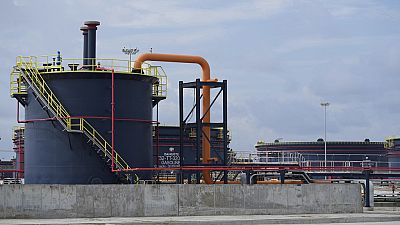
Africa’s Booming Frontier:
Forget the dusty savannas of old. Nigeria’s story is being rewritten, not with the rumble of oil rigs, but with the sizzle of innovation and the roar of a burgeoning tech scene. This nation of over 225 million pulsates with youthful energy, a hotbed of opportunity waiting to be explored.
While oil remains a significant player, Nigeria is strategically pivoting towards a diversified future. This presents a golden opportunity for investors to become pioneers, shaping the landscape of Africa’s next economic frontier.
Abuja City Gates, Nigeria
Foreign Investment:
Nigeria actively welcomes foreign ownership, permitting full foreign control in most sectors. This progressive approach, coupled with recent amendments to local company and tax regulations, creates a favorable environment for international businesses. Furthermore, the ratification of the African Continental Free Trade Area (AfCFTA) grants access to a vast continental market, further enhancing the appeal of the Nigerian market.
Streamlined Business Incorporation:
Establishing a business with foreign shareholding in Nigeria follows a well-defined and efficient process:
- Initial Planning: The initial steps involve defining the venture’s legal structure, selecting a suitable business name, and determining the initial capital investment. For ventures involving partnerships with local entities, a meticulously crafted joint venture agreement outlining roles, responsibilities, and profit-sharing mechanisms becomes crucial.
- Delegation and Legal Framework: Appointing a reputable Nigerian solicitor to handle legal matters is essential. Foreign shareholders can grant them Power of Attorney to expedite the incorporation process.
- Formalization: Once the legal groundwork is laid, obtaining a Certificate of Incorporation becomes the next crucial step. Additionally, registration with relevant authorities such as the Federal Inland Revenue Service (FIRS) for tax compliance purposes is mandatory.

Lagos, Nigeria
The Approval Process:
The Nigerian Investment Promotion Commission (NIPC) acts as a facilitator for foreign businesses seeking to establish a presence in the country. Obtaining their approval involves submitting a comprehensive application package that demonstrates the venture’s commitment to the Nigerian economy.
This application typically includes:
- Detailed Documentation: A feasibility report outlining the proposed venture’s viability, a comprehensive project plan detailing the operational strategy, and proof of securing business premises are essential elements of the application.
- Skilled Workforce Integration: A demonstrably strong training program outlining a clear path for empowering Nigerian personnel adds significant weight to the application. This commitment to fostering local talent showcases the venture’s long-term vision and its alignment with the government’s economic development goals.
- Expatriate Expertise: Seeking approval for expatriate staff necessitates providing their qualifications and outlining a clear knowledge transfer plan. This plan ensures the transfer of specialized skills and expertise to Nigerian personnel, fostering long-term sustainability and knowledge retention within the venture.
Tax Incentives:
The “Pioneer Status” designation offered by the Nigerian government presents a significant advantage for foreign investors. Companies operating in designated industries can enjoy tax holidays for up to five years. This translates to substantial cost savings, significantly enhancing their profitability in the initial years of operation.

Oil Plant, Nigeria
Beyond Oil:
While oil and gas remain a dominant force in the Nigerian economy, the nation boasts a wealth of potential beyond this single sector. Here are some promising sectors brimming with potential for foreign investment:
- Agriculture: Nigeria possesses vast swathes of fertile land, strategically positioning it to become a significant contributor to food security in Africa. Investment in agricultural processing facilities, infrastructure development, and modern farming techniques can unlock immense potential within this sector.
- Fintech: A young, tech-savvy population is driving the demand for innovative financial solutions. Fintech startups are disrupting the traditional financial landscape, creating lucrative investment opportunities in areas like mobile banking, digital payments, and online lending platforms.
- Manufacturing: The “Made in Nigeria” initiative aims to stimulate local production. Investors with expertise in establishing manufacturing units can capitalize on this growing trend by setting up production facilities catering to the domestic market and neighboring countries within the African continent.
Nigeria presents a compelling proposition for investors seeking a vibrant and lucrative market. With a supportive government framework, a skilled workforce, and a burgeoning middle class, the nation offers fertile ground for businesses to flourish. Foreign investors are encouraged to explore the vast opportunities available in this rapidly developing market.
Partner with HRLeverage, your trusted Nigerian business ally, to surf the waves of business setup and unravel your full potential in this vibrant nation. Contact us today at info@hrleveragefrica.com and turn your ambitions into reality.
